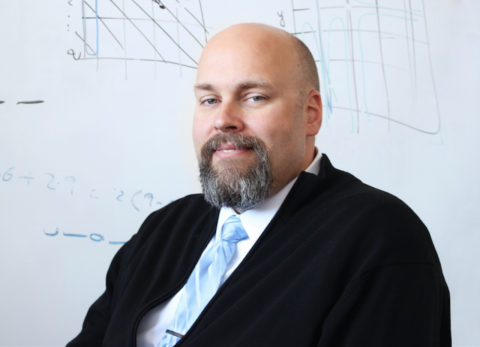Prof. Tim Sherwood gave a Distinguished Seminar at George Mason University

Prof. Tim Sherwood was recently named a Distinguished Lecturer at George Mason University's ECE Department, where he delivered a distinguished seminar on "Computer Architectures as an Instrument for Understanding the Nature of Practical Computation".
In this talk, Prof. Sherwood discussed some key insights for the future of practical computing from the computer architecture point of view. By most outside the field, and even by many of those in it, Computer Architecture is mistakenly thought to be an act of pure stepwise engineering: find a processor design that makes your software run faster than the last iteration. However the quest for better processors taken to the extreme offers some "curious side effects" -- it changes the way you see the act of computation, it forces you to really reconsider what a system should be, and perhaps can even yield insights about the natural world. In this talk, Dr. Sherwood explored three concrete problems where Computer Architecture has provided a unique and valuable lens. The first relates to the 59.5 billion dollar problem of software bugs, the second to the insidious nature of security vulnerabilities that live between hardware and software (such as Spectre and Meltdown), and the third to both the functioning of the visual cortex and the future of hardware for machine learning.